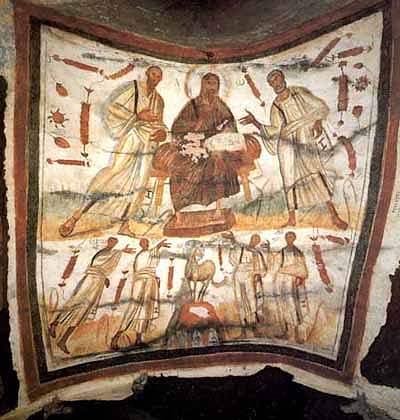
Historical background of the New Testament
Most scholars who study the historical Jesus and early Christianity believe that the canonical gospels and the life of Jesus must be viewed within their historical and cultural context, rather than purely in terms of Christian orthodoxy.[1][2] They look at Second Temple Judaism, the tensions, trends, and changes in the region under the influence of Hellenism and the Roman occupation, and the Jewish factions of the time, seeing Jesus as a Jew in this environment; and the written New Testament as arising from a period of oral gospel traditions after his death.
In 64 BCE, the already partially Hellenized Hasmonean Kingdom of Judea was incorporated into the Roman Republic as a client kingdom when Pompey the Great conquered Jerusalem. The Romans treated Judea as a valued crossroads to trading territories, and as a buffer state against the Parthian Empire. Direct rule was imposed in 6 CE, with the formation of the province of Judea. Roman prefects were appointed to maintain order through a political appointee, the High Priest. After the uprising by Judas the Galilean and before Pontius Pilate (26 CE), in general, Roman Judea was troubled but self-managed. Occasional riots, sporadic rebellions, and violent resistance were an ongoing risk.
Throughout the third quarter of the first century, the conflict between the Jews and the Romans gave rise to increasing tensions. Before the end of the third quarter of the first century, these tensions culminated with the first Jewish-Roman War and the destruction of the Second Temple in Jerusalem. This war effectively flattened Jerusalem, and the city was later rebuilt as the Roman colony of Aelia Capitolina, in which Jews were forbidden to live.